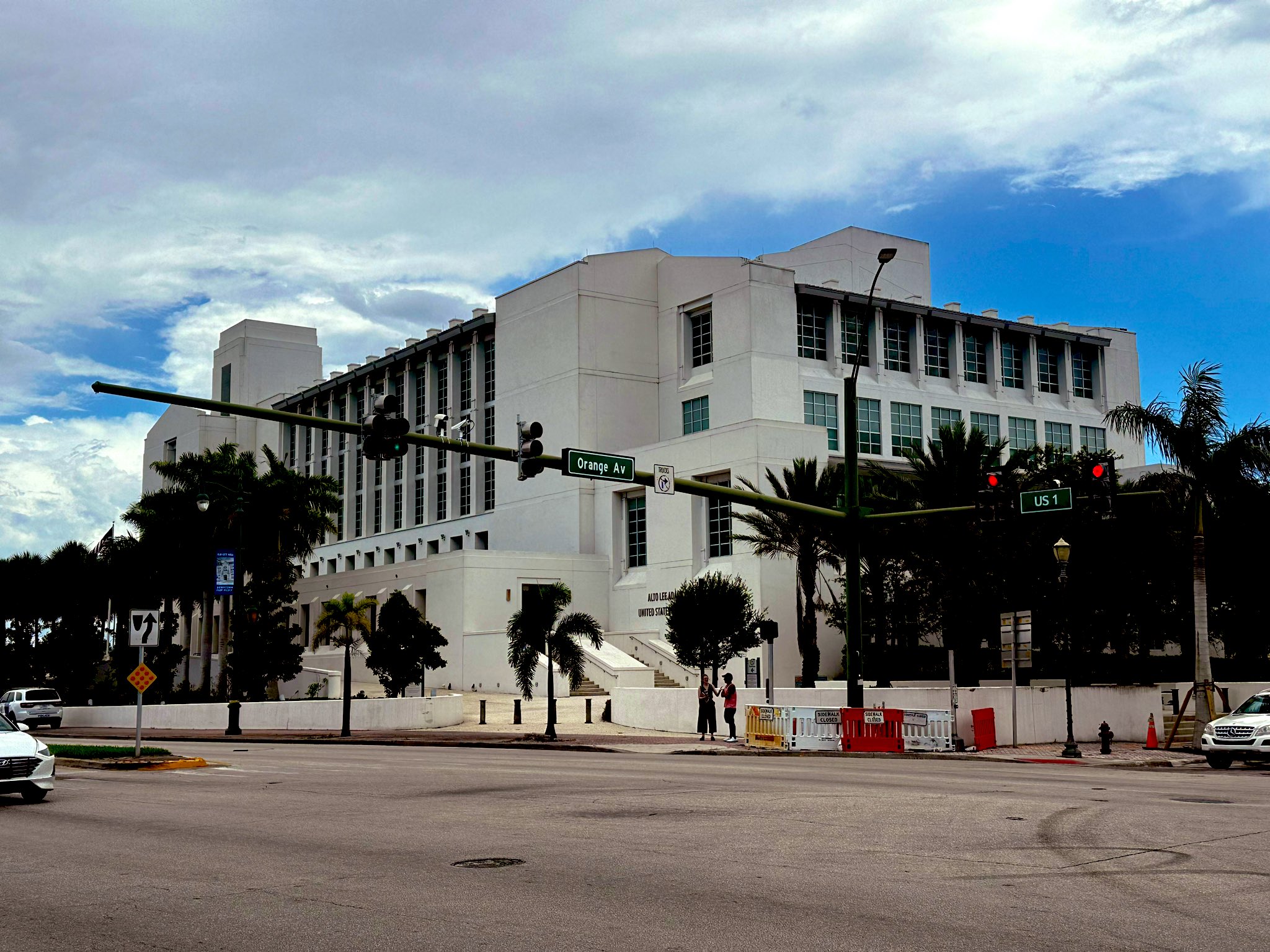Today's Headlines and Commentary
The remaining Syrian rebels in Aleppo are banding together in a new alliance to resist encroaching government forces, Reuters reports. The alliance is calling itself the “Aleppo Army” and is led by Abu Abdelrahman Nour of the Jabha Shamiya faction. Infighting has hurt the rebels’ ability to repel government fighters before, including during this past weekend’s offensive when the regime recaptured a third of rebel-held territory in the city.
Published by The Lawfare Institute
in Cooperation With

The remaining Syrian rebels in Aleppo are banding together in a new alliance to resist encroaching government forces, Reuters reports. The alliance is calling itself the “Aleppo Army” and is led by Abu Abdelrahman Nour of the Jabha Shamiya faction. Infighting has hurt the rebels’ ability to repel government fighters before, including during this past weekend’s offensive when the regime recaptured a third of rebel-held territory in the city.
The rebels may have begun secret talks with Russia to end the siege of Aleppo, the Financial Times writes. The negotiations are happening in Ankara, where the Turkish government is serving as a mediator between four rebel leaders and Russian officials. Notably, the talks do not include a U.S. representative. Turkish and Russian officials announced their joint support for an agreement to end the fighting in Aleppo even as they disagree on how the post-war order in Syria should take form, Reuters adds.
The U.N. Security Council convened an emergency session yesterday to discuss Aleppo, but Russian obstructionism will likely block any substantive actions to remedy the continued fighting or the Kremlin’s humanitarian abuses. The Wall Street Journal has more.
Iraqi forces have recaptured 19 neighborhoods since the Mosul offensive began on October 17th, the AP tells us. The government’s elite counterterrorism forces are gradually clearing the city from the east, and are only 2.5 miles away from reaching the Tigris, which divides Mosul in half. Poor weather, urban terrain, and the presence of civilians have slowed the advance of coalition forces since they reached Mosul proper.
As the siege on Islamic State forces in Sirte moves toward a successful conclusion, the United States is “watching very carefully” to track militants fleeing the Libyan city, Reuters writes. While Sirte is the only city that the group controls in Libya, U.S. officials are concerned that ISIS fighters will disperse throughout the country.
The United Nations reports that it is unable to deliver humanitarian aid in South Sudan, Reuters notes. Both the rebels and the government are attacking aid workers, and government fighters are blocking aid convoys at checkpoints. This inability to deliver aid is consistent with the international community’s overall failure to check the violence ravaging the country. Foreign Policy has more.
Kenyan authorities have charged two Iranians for helping plan an attack on Israeli embassy in the country, the AP reports. The two men were in an Iranian diplomatic car when they were arrested, and the police allege that they were casing the embassy by filming the site with their phones.
Ukraine finished two days of military exercises today, including testing 16 missiles that Russia warned it would shoot down if they entered the airspace around Crimea, the BBC writes. The Kremlin reported that the Ukrainian military had moved the planned boundary of the missile tests away from Crimea before it began the exercises.
Hackers struck Saudi Arabia’s aviation agency last month with malware similar to the Shamoon virus, which plagued the kingdom’s energy infrastructure four years ago, the Times observes. The attack cleared data from government servers and appears to have come from a foreign actor—most likely Iran. The Saudis and Iranians are fiercely competing for regional dominance and have allegedly used cyberattacks against each other in the past.
Russian President Vladimir Putin called for closer U.S.-Russia relations in his state-of-the-nation address today, the Financial Times tells us. Putin rejected “myths about Russian aggression” while emphasizing the importance of cooperation in counterterrorism and nonproliferation. President-elect Donald Trump notably made better relations with Russia a centerpiece of his foreign policy platform during the campaign, and several of Trump’s staffers reportedly have connections with the Russian leader.
Meanwhile, President Obama is under pressure to release information about possible Russian interference in the election before President-elect Trump comes to office, Politico reports. Democrats on the Senate Intelligence Committee are calling for the public release of classified information on the subject, noting that the U.S. intelligence community has accused Russia of hacking American targets as part of a sustained campaign to spread both information and misinformation to sway the election in Trump’s favor. Buzzfeed has more on Russian efforts to spread fake news during the campaign.
Pakistan released a rough transcript of a phone call between President-elect Trump and Pakistani Prime Minister Nawaz Sharif yesterday in which Trump repeatedly used words like “amazing” and “fantastic” to describe the Pakistani government, the Washington Post writes. It seems the President-elect may have changed his previously critical tone about the country. The release may have implications for the Trump administration’s relationship with India, which is in the midst of a months-long period of border skirmishes with its long-standing rival.
The U.N. Security Council tightened the sanctions regime on North Korea yesterday in an effort to increase pressure on the hermit kingdom to freeze its nuclear proliferation efforts, Reuters reports. The measures will attempt to reduce North Korean export revenues by roughly a quarter, targeting coal—the North’s primary export commodity—as well as other natural resources. They also seek to block the export of gigantic socialist statues, which North Korea crafts for some African countries. China emphasized that the sanctions would not block “normal” trade, while South Korea vowed to implement more stringent unilateral sanctions.
Australia has established a new law allowing the government to keep convicted terrorists in detention past their allotted prison sentence if authorities decide they remain a security threat. Courts can not only extend their detention for up to three years but also renew that extension without limit. The Times has more.
The Colombian Congress has ratified a new peace deal to end the country’s 52-year civil conflict, the Journal notes. The legislative vote follows an October referendum that unexpectedly rejected a peace proposal, prompting renewed efforts to find a political settlement. The deal will integrate the FARC guerrilla movement into the existing political process with the formation of a new political party. It does not prohibit FARC leaders who committed human rights abuses from holding office, a key clause sought by opponents of the deal.
Changes to Rule 41 went into effect today, updating venue provisions to allow federal judges to issue search warrants for computers where the location has been concealed by technical means and to allow the government to seek a single warrant to respond to botnets located in five or more federal districts, Reuters tells us. Efforts to block the new rule failed in the Senate despite concern among some legislators, including Senator Ron Wyden (DOR), that the next administration may abuse these powers.
ICYMI: Yesterday, on Lawfare
David Kimball Stanley flagged a legal decision on the regulation of 3-D printed guns.
Stephanie Leutert discussed the kidnapping epidemic in Mexico.
Beverley Milton-Edwards commented on the most recent failed ceasefire in Yemen.
Email the Roundup Team noteworthy law and security-related articles to include, and follow us on Twitter and Facebook for additional commentary on these issues. Sign up to receive Lawfare in your inbox. Visit our Events Calendar to learn about upcoming national security events, and check out relevant job openings on our Job Board




.jpg?sfvrsn=6b10cf8f_5)
